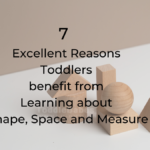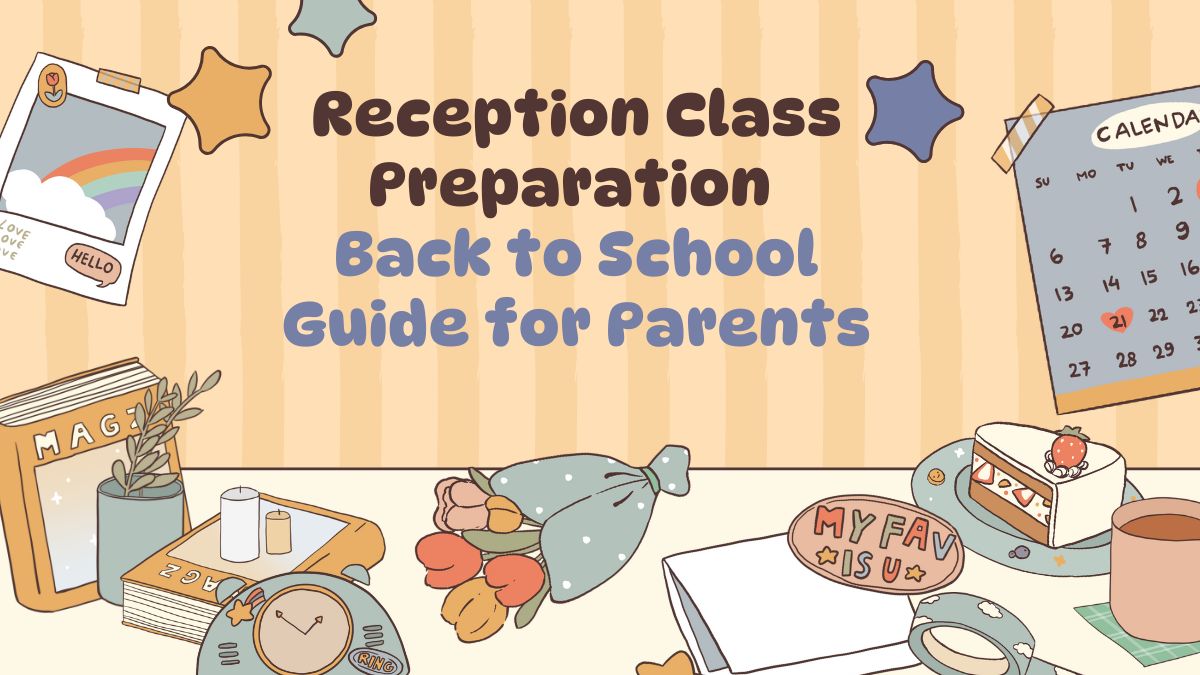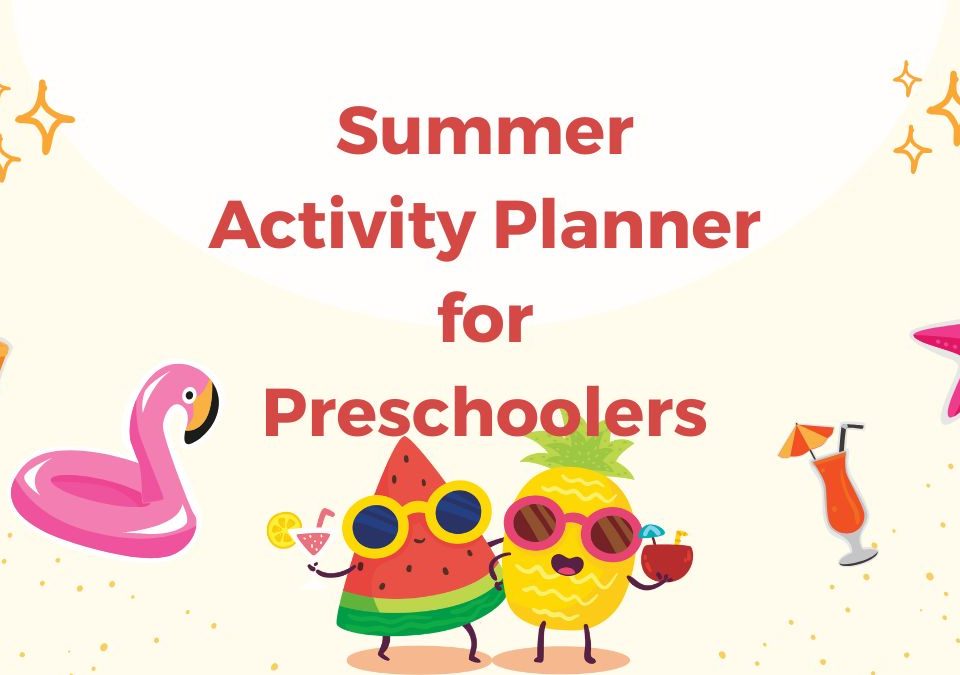
testing lead magnet dont delete

What To Do When Your Toddler Won’t Sit Still for a Story

Table of Contents
Back to School Prep: What Every Parent Needs for Reception Class
Reception Class Preparation Made Simple
Starting in Reception class is a major milestone for both children and parents. It’s the bridge from preschool play to structured learning, consistent routines, and growing independence. Solid Reception Class Preparation helps children feel ready and secure while easing parental stress.
As an early years educator and mum of three, I’ve helped many families through this transition. This article offers practical strategies, a Reception class checklist, and a Morning Routine Checklist to help your child start school with confidence.
What to Expect in Reception
Reception is the final year of the EYFS (Early Years Foundation Stage) in England and Wales, for children aged four to five. It blends structured learning with play-based exploration and social skill-building.
Your child will be expected to:
-
Follow daily routines (snack time, carpet time, group work)
-
Manage personal belongings (coat, water bottle, lunchbox)
-
Use a pencil and scissors with control
-
Write their name
-
Interact with peers and follow group instructions
Reception Class Preparation helps children build the independence and emotional readiness these expectations require.
Reception Class Checklist: Essentials to Buy and Label
School Bag and Equipment
-
Uniform & spare clothes (layers + named bag)
-
Waterproof coat and wellies
-
Lunch box and metal water bottle (easy-open, spill-proof)
-
PE kit and personalised PE bag
-
Reading book folder or a library bag
Shop for school bags here
Stationery (If Needed- some schools provide everything)
-
Pencil case with a thick beginner pencil, scissors and a glue stick.
-
Name stickers or markers for all items
Top Tip: Lay out everything at home and let your child practise packing their bag. This simple step builds ownership and routine—both key parts of Reception Class Preparation.
Create a Strong Back-to-School Routine
Use our Daily Routine Checklist to help your child get school-ready. Routines reduce stress and make mornings smoother for everyone.
Evening Prep:
-
Pack their bag and reading folder
-
Lay out uniform and shoes
-
Check that their water bottle and lunch are ready
Morning Steps:
-
Toilet and wash
-
Get dressed independently
-
Eat breakfast
-
Brush teeth
-
Put on shoes and a coat
👉 Download the printable Morning Routine Checklist here.
Practise this routine for two weeks before school starts. A predictable morning sets a calm tone for the day.
Develop Fine Motor Skills at Home
Children starting Reception often need more confidence with scissors, pencils, zips, and buttons.
Fun ways to build fine motor control:
-
Playdough pinching and rolling
-
Bead threading or lacing cards
-
Scooping and pouring rice or pasta
-
Cutting shapes from paper
These playful activities improve hand strength, control, and dexterity—key foundations for writing and self-care.
Tip: Add these to your child’s weekly activities as part of their Reception class preparation routine.
Screwdriver Board Set-Lock and Key Toy
Funcils Toddler Scissor Skills
Threading Toy
Boost Social Skills and Independence
Reception involves:
-
Lining up
-
Sitting for short lessons
-
Waiting turns
-
Managing separation
Practice ideas:
-
Role-play turn-taking and group games
-
Arrange short playdates or group visits
-
Talk about using the school toilet and asking for help
Label everything. Encourage your child to take responsibility for their belongings each evening.
Magnetic Fishing Game
Insey Winsey Spider Game, Shape and Counting Game
Support Early Reading and Language Skills
There’s no need to push formal reading, but early literacy habits matter.
Simple activities:
-
Read aloud daily and talk about stories
-
Point out letters and sounds in signs or packaging
-
Play listening games and sing rhymes
-
Match initial sounds to objects (e.g. “b” for ball)
These habits support phonemic awareness and vocabulary—cornerstones of reading readiness.
6 Effective ways of Teaching Phonics to Children: A Parent’s Guide to EYFS Literacy Success
How to Teach Letter Names and Sounds
Ease Separation and Emotional Wobbles
It’s normal for children to feel anxious when starting Reception.
Strategies to support emotional readiness:
-
Create a goodbye ritual (e.g. hand squeeze, phrase, pocket note)
-
Use a family photo in their book bag
-
Ask one specific question after school (“What made you smile today?”)
Be consistent and calm—even if there are a few tears. The emotional side of Reception Class Preparation often matters more than the physical supplies.
Change: how do children cope?
Run Practice Mornings at Home
Simulate school mornings:
-
Set a timer for “getting dressed time”
-
Practice sitting for carpet time
-
Do a 5–10 minute group activity (like a read-aloud or instruction game)
-
Then break for play
If your school offers taster days or home visits, take them—they help reduce uncertainty for your child.
Rainbow Countdown Timer
Reception Admin for Parents
Before school starts, make sure you:
-
Know your child’s drop-off/pick-up process
-
Set up any school apps or communication systems. Check if there’s one for ordering lunches too.
-
Have a list of term dates and events
-
Know how to report sickness or absences
Keeping this admin in place prevents last-minute stress—and lets you focus on your child’s experience.
First-Day Tips
-
Expect mixed emotions. Reassure, but don’t linger.
-
Keep after-school time quiet and screen-free.
-
Don’t quiz—ask simple, positive questions.
-
Stick to the routine—even if things feel wobbly.
The key is consistency, patience, and routine.
Conclusion: Set the Tone With Smart Reception Class Preparation
Starting school is a big shift—but with thoughtful Reception Class Preparation, your child will feel more secure, and you’ll feel more confident too.
Focus on routines, independence, emotional support, and early skill-building. Use the checklist. Practise together. Take it one day at a time.
You’ve got this.
More useful articles
-
7 Essential Areas for School Readiness
-
How to Encourage Reading in Children
-
Coping with Starting Pre-School
-
Nurturing Fine Motor Skills in Toddlers
Free Download

Send Download link to:

I am a preschool and primary school teacher and mum to 3 children. I have been involved in education since 1997 and have trained in a variety of educational specialist areas. It is with this expertise that I write articles to help parents and educators provide quality learning experiences for the children in their care.




